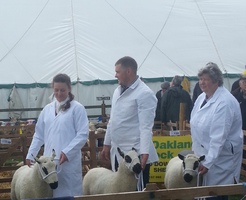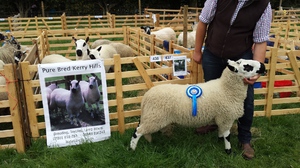
Health and welfare
We manage our flock tradtionally requiring significant labour imput. Our herb rich meadows with yellow rattle and ragged robin are cut annually for haylage or hay for winter fodder for our sheep.
Our south facing fields drain well on the loam soil and we continue upgrading the field drains. Water from the fields drains through a series of field ditches down in to Adel Beck which forms part of the farm boundary in Scotland Mill Woods. Dryer land means fewer field rushes.
Our low stocking density promotes flock health, reduces over grazing and poaching of the land.
Pre and immediately post lambing we may supplementary feed ensuring plenty of milk for strong lambs.
Our spring lambs wait a full 16 months before they become fit and mature ready to become Mum's.
Speed doesn't equal quality.
We spray for thistles which can puncture the mouths of the sheep and hand pull any Ragwort which causes liver damage in cattle and horses.
We lime around water troughs and gateways where stock congregate and have a walling restoration programme for the magnificent dry stone walls which provide shelter from wind and driving rain; cutting back suckering Blackthorn as sheep can become entangled in the thorns. We leave a few to make Sloe Gin. We now also have two guard Llamas to protect against dog attacks.
We must cull vermin that attack our young lambs biting off their tails or killing them. Crows and magpies can peck at their eyes and foxes bite off their tails.
Our flock are regularly rotated through different fields reducing the need for worming.
Although not organic this high animal welfare regime supports a minimal need for medical intervention or antibiotics.
Our relatively acidic soil means our sheep are unlikely to suffer from grass staggers but occasionaly add lime to 'sweeten' the soil to improve grass palatability.
Shearing takes place usually in June when the fleece has 'risen'. They are sorted and taken to Bridlington for processing and the cream fleece is spun in to yarn for hand or machine knitting or to make duvets for our holiday lets.
When we feel our sheep are at the optimum weight we transport them ourselves for processing and then on for butchering and vacumn packing in Skipton for our Lamb Box scheme. Approximately 30 are sent per annum.


